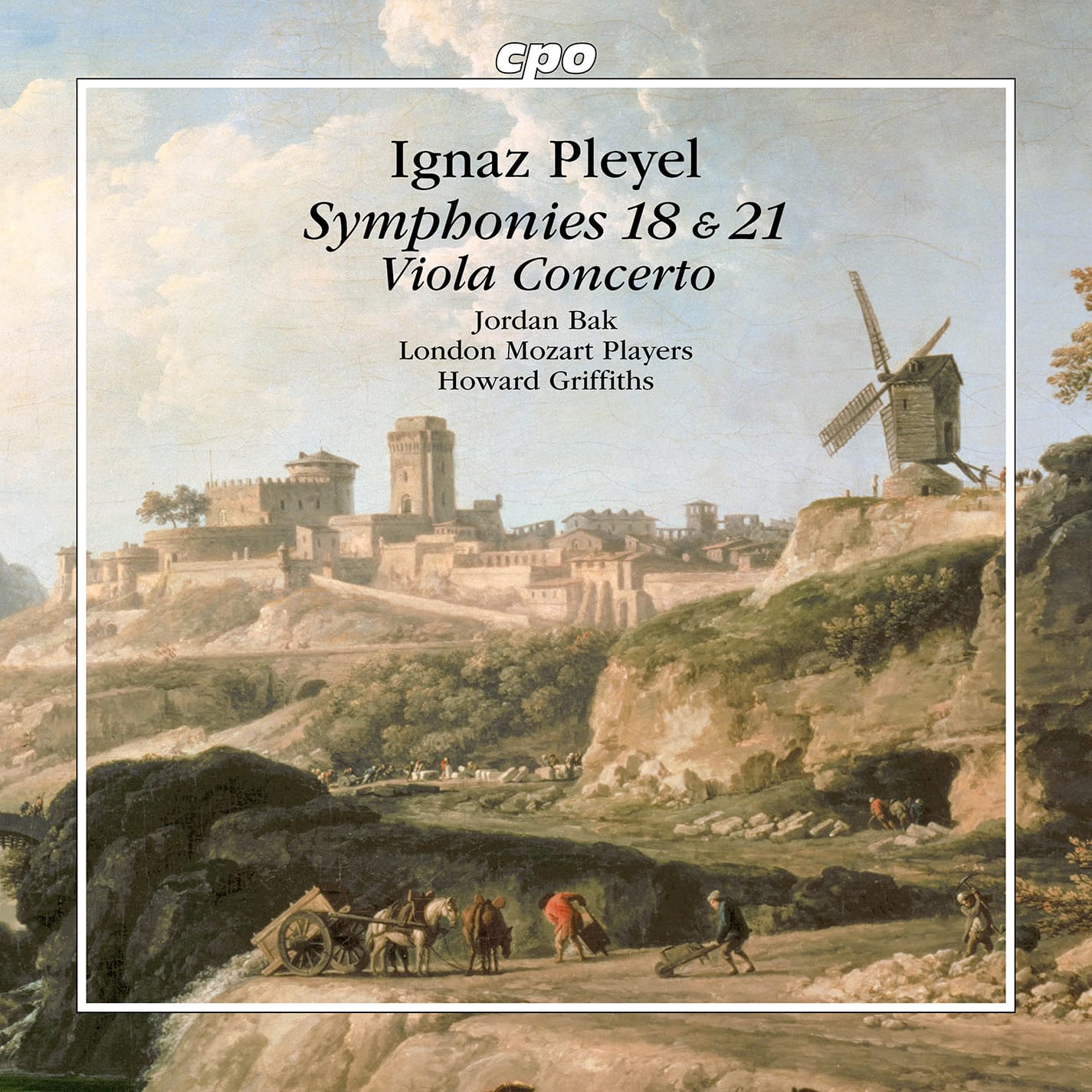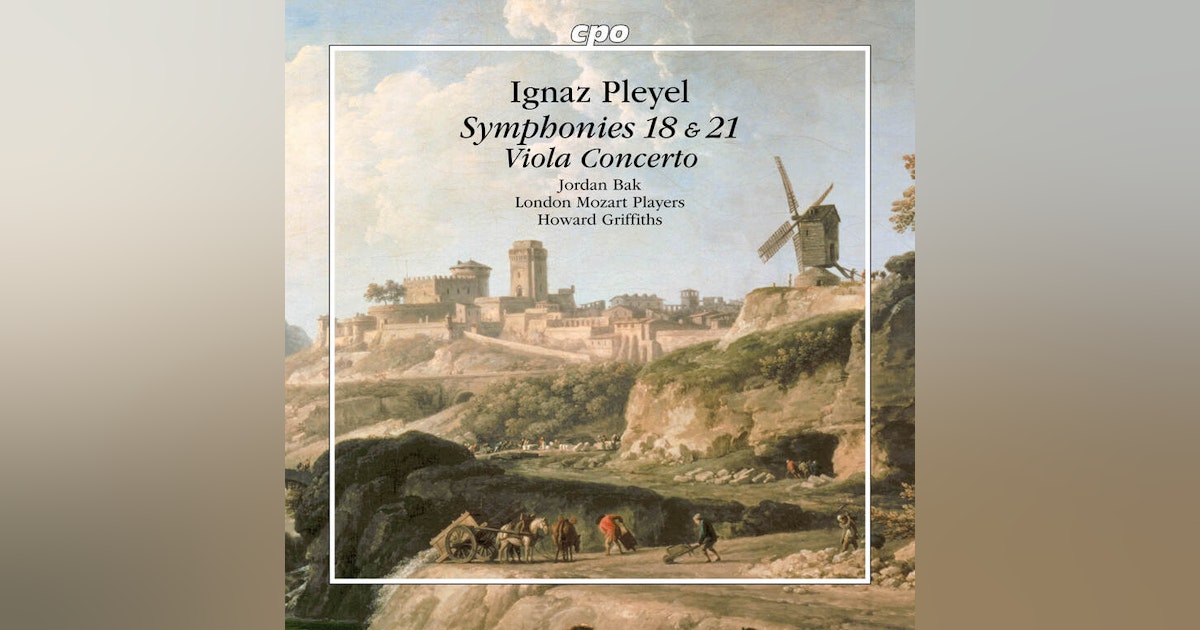More Pleyel: The London Mozart Players on cpo
A beautifully produced and executed disc of refreshing rarities

Previously, we covered three string quartets by Ignaz Pleyel (1757-1831) in this post. While he was certainly tremendously popular in his day, Pleyel's music has dipped into obscurity s0 for a long time he was basically known as a piano maker (and music publisher). Taught by Haydn, his music has.similar tautness of expression; also, Pleyel studied with Johann Baptist Vanhal (1739-1813).
This recent (February) cpo release features the London Mozart Players, a long-established London-based ensemble . The opening Adagio is beautiful and harmonically fairly adventurous, leading to an Allegro spiritoso. Although not a period-instrument band, the LMP play with period-influenced practices (non-vibrato strings for example).
This is a four-movement symphony, whose 'slow' movement, second - an Andante - has a nice forward momentum here. Formally a mix of rondo and variations, there are, harmonically, moments the hearken back to the slow introduction of the first movement. The Minuetto (not Menuetto!) begins with a lovely hoisting up of its britches, a gesture transformed in the Trio into subdued unison octaves that find the most lovely cadence:
The finale feels perhaps just 1% lower than a Presto here, but has plenty of spirit, nevertheless.
The Viola Concerto also exists in a version for cello and orchestra - it was first printed in 1790. The music exudes charm and, while not overtly virtuoso for the soloist, sill shows off their skill. "They' in his instance is Jordan Bak, who plays with much skill and musicality. This is not a short concerto though - a full half hour, and Pleyel keeps the interest in sometimes facing fashion in the first movement. There is no indication as to were the cadenza originates from, but it is nicely stylish and exploratory:
The Adagio ma non troppo exudes a grace I associate with J. C. Bach, yet in Pleyel's slightly richer harmonic language. Everything is eminently civilised, speaking of a lost age; there are some hamonic darkening that go beyond what J. C. B. might have countenanced, for sure ....
The bright, breezy finale boots a theme that skips infectiously. Bak is fabulous, and he, the music joyous and free. Interesting how the music seems o scud o a temporary halt as I approaches the first cadence; this movement seems to be about setting up momentum then costing it.
The Symphony in D-Major (1782-4) feels more Sturm und Drang than its disc mate. This is a terrifically exciting performance while remaining a disciplined one. The sheer energy may surprise you:
The second movement is unusual in being designated an “Arioso”; and it is cast as a da capo aria. The melodic material also has something of the stage about it, while the 'B' section is markedly dramatic (back to Sturn und Drang, without doubt).The Wikipedia entry on Pleyel confirms he wrote several operas (anyone every heard any of them?!: update! see postcriptum 2). The minuet is, in contrast, rather rustic, especially the horns of the Trio:
Rondo and Haydnesque monotheistic sonata form meet in the finale (simply enticed 'Rondo'), an emotionally layered movement. The end is as delicious as it is surprising:
A beautifully produced and executed disc of refreshing rarities.
Postscriptum: Going down a rabbit hole with my thoughts on Pleyel opera above, recordings do seem rare than hen's teeth - but Pleyel did his own setting of Ifgenia in Aulide in 1785; there is also a four-act 'marionette' opera Dir Fee Ungele (1776), and Pleyel also wore an Overture to one of Haydn's operas, Die Feuersbrunst.
Postscriptum 2: My thanks to James Inverne for p[ointing out this delicious morsel, and just listen to sopranist Arno Raurig as Ulisse (Odysseus), a live performance from 2005 at Säulenhalle an Heldenberg:
This disc is available at Amazon here.


